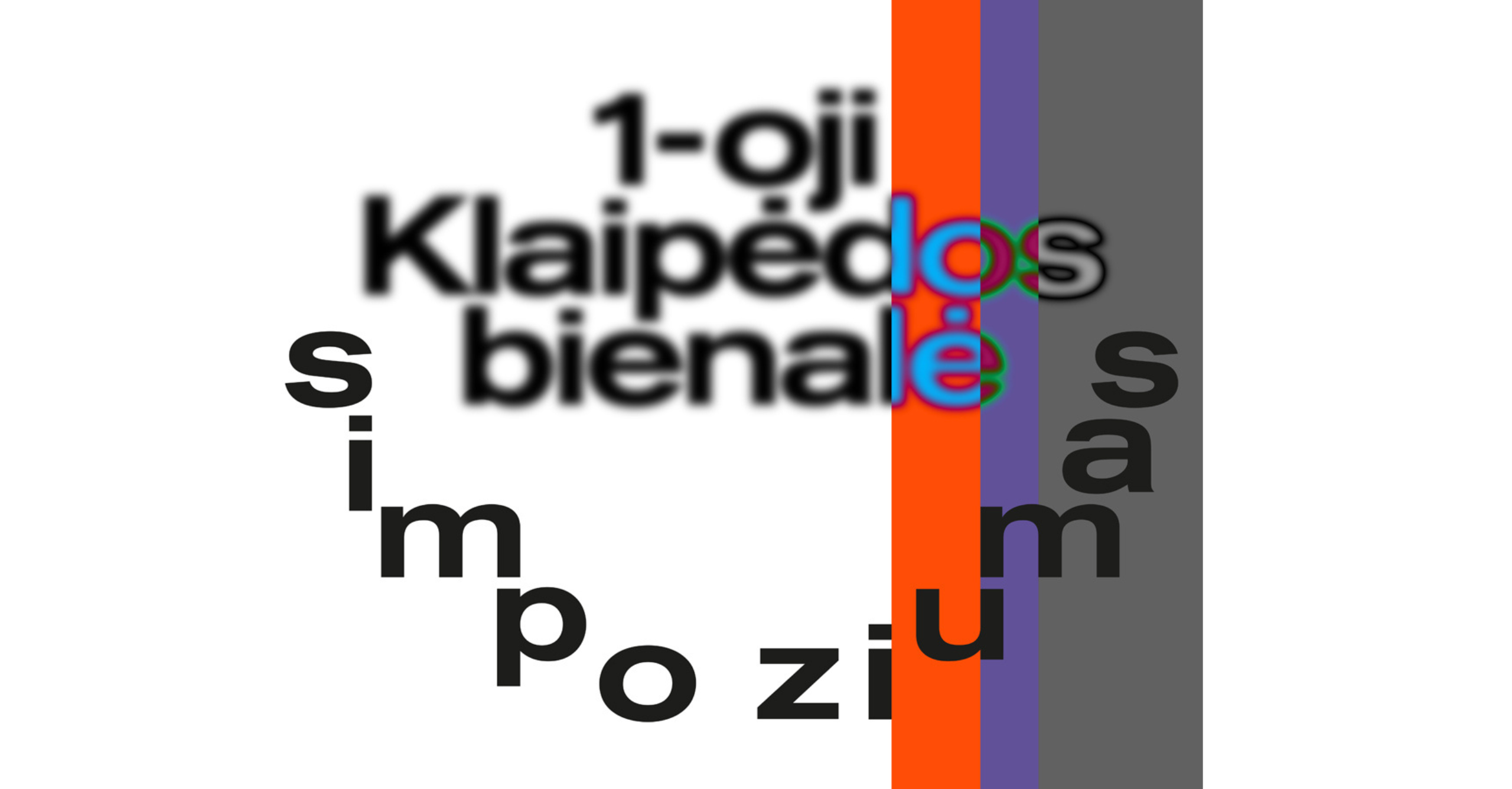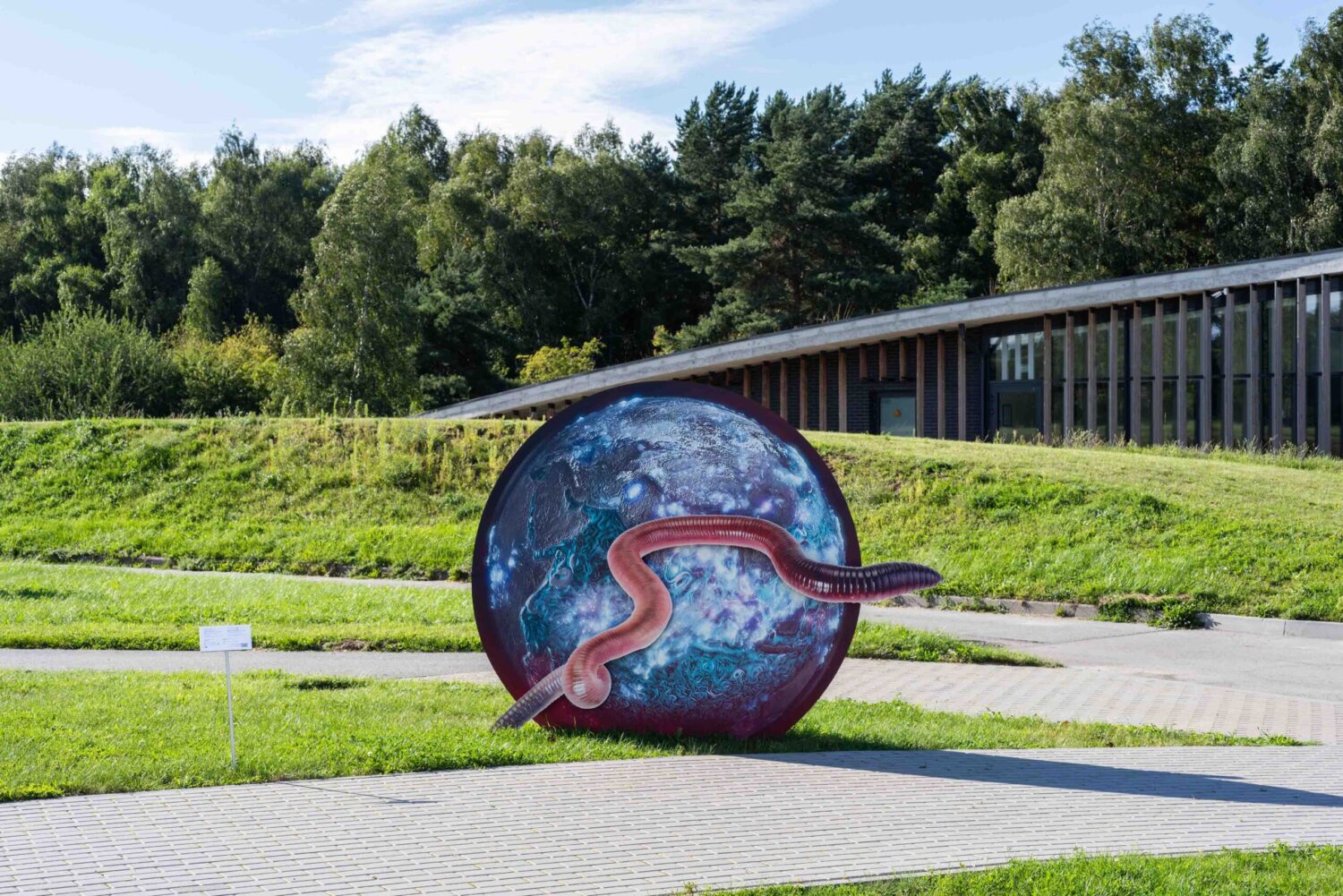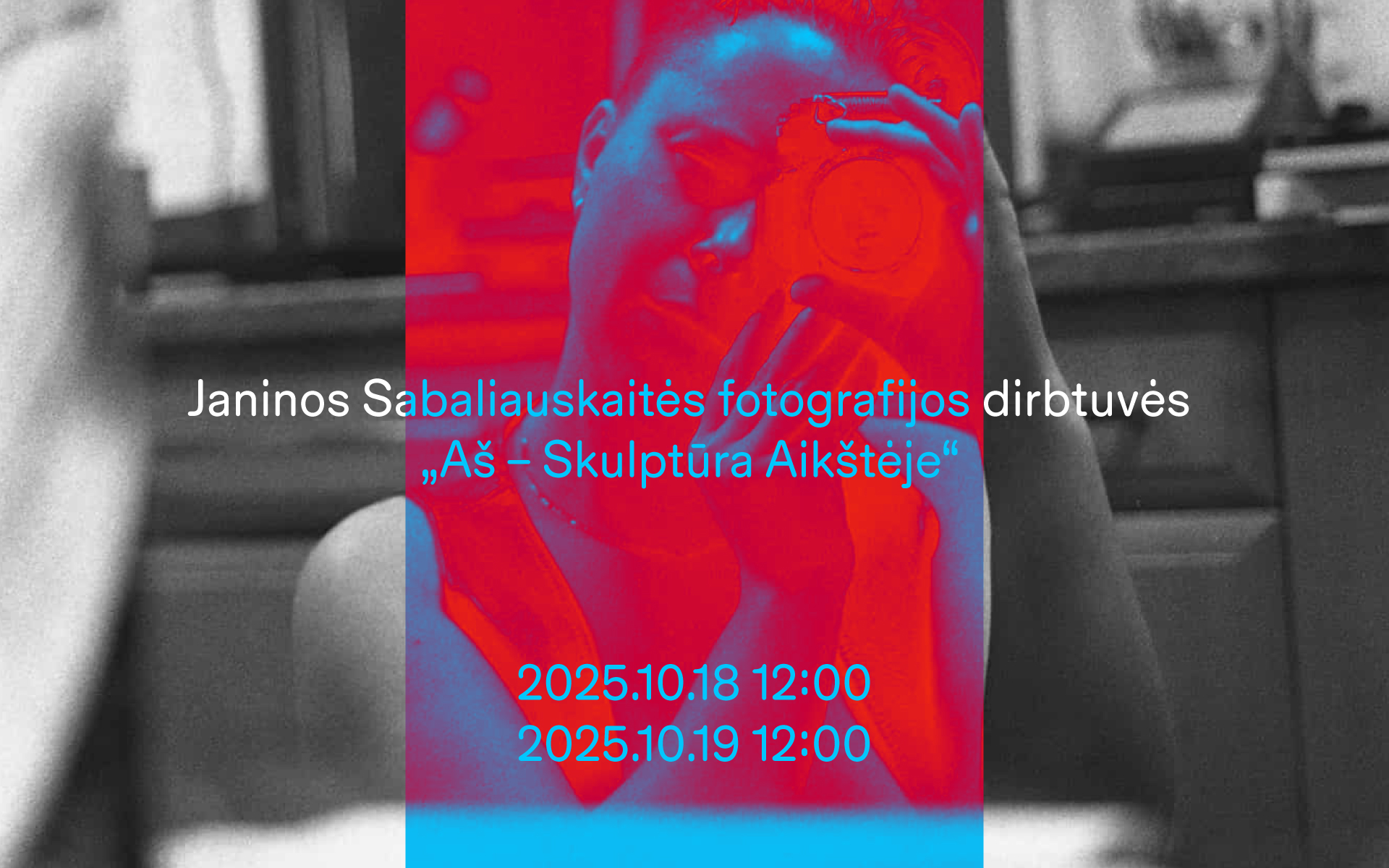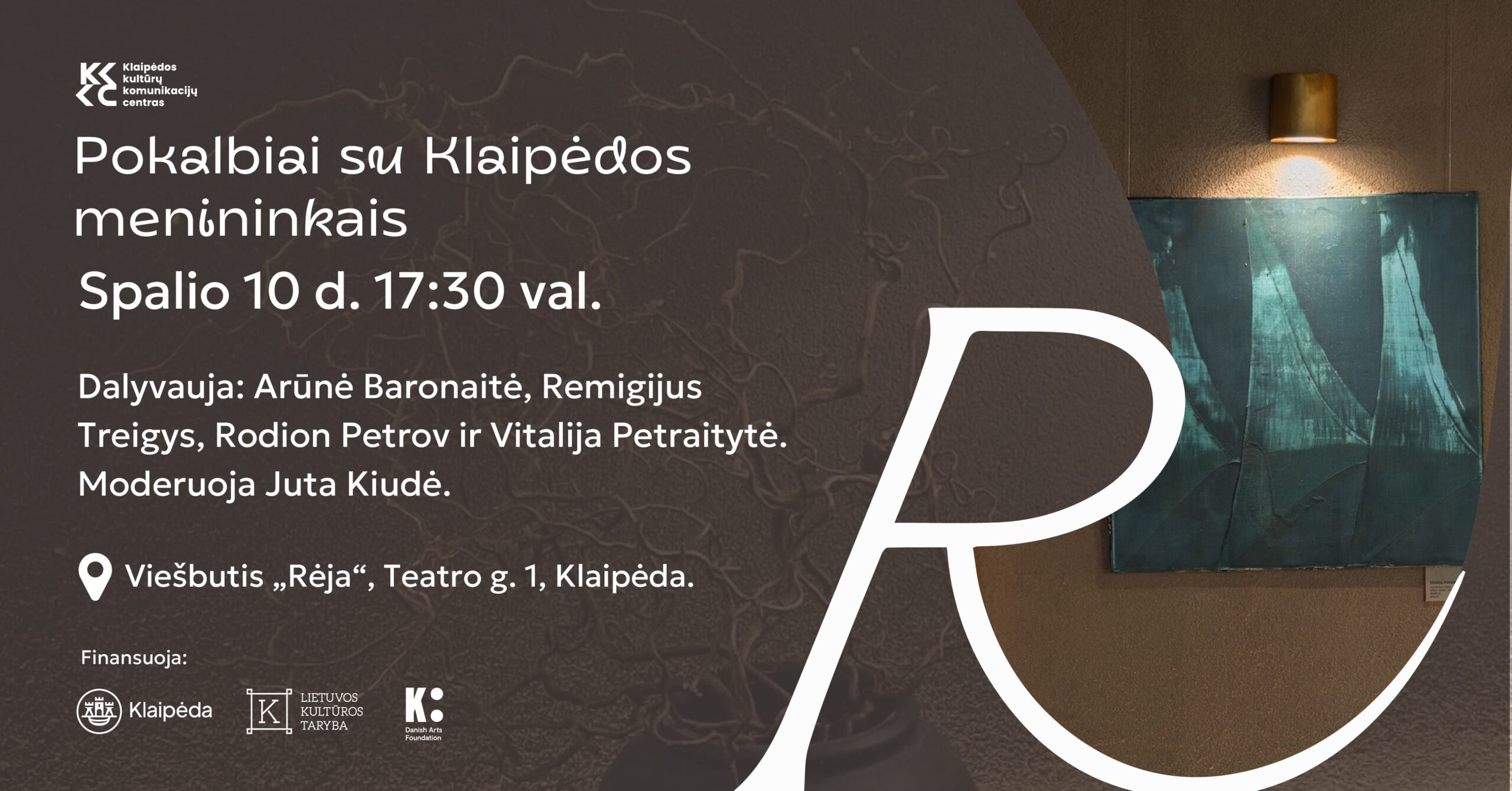1ST KLAIPĖDA BIENNIAL SYMPOSIUM
On the last day of May, a public art and science event was held in Klaipėda – an open symposium marking the launch of the 1st Klaipėda Biennial. It was the first public gathering dedicated to the biennial, presenting its thematic direction and tone, and sparking a general conversation about transformation, ecology, and urban identity.
Transit as a cultural, ecological, and cognitive state.
The symposium presented transit, the biennial’s central theme, as a multifaceted concept, encompassing not only physical but also symbolic transitions between states, periods, and identities. The city of Klaipėda, whose identity has been shaped through constant political, geographical and cultural transformations, served as a living context for this theme. The programme included reflections from both ecological and artistic perspectives, allowing natural materials such as moss, algae and soil, to become both objects of research, and narrators. These quietly eloquent materials bear witness to extinction, mourning, and survival, while art serves as an archive, preserving what is disappearing, yet still speaks. Scientific presentations unveiled the world of lagoon and marine ecosystems, where matter is constantly evolving both in terms of form, and environmental impact, from transforming atoms and molecules, to systemic changes in the lagoon, to the movement of microplastics and marine pollution. The symposium was moderated by culture journalist Juta Kiudė.
Symposium speakers: Dr Valentinas Klimašauska, curator of the biennial, art critic, writer, associate professor at the Vilnius Academy of Arts, director of the CAC
Prof. Vasilijus Safronovas, Klaipėda University historian, researcher of city identity
Arūnė Baronaitė, biotechnologist and artist working with ecological grief and posthumanist imagination
Dr Arūnas Balčiūnas and Dr Mindaugas Žilius, researchers at Klaipėda University’s Marine Research Institute
Agnė Jokšė, interdisciplinary artist.
Symposium presentations:



